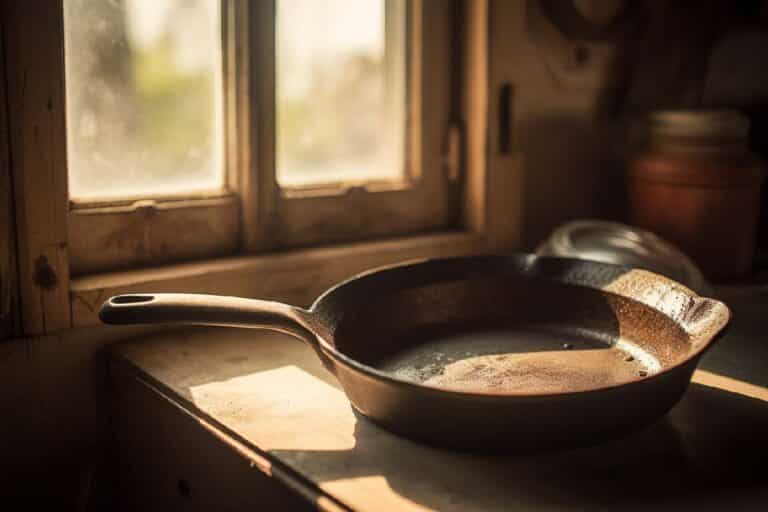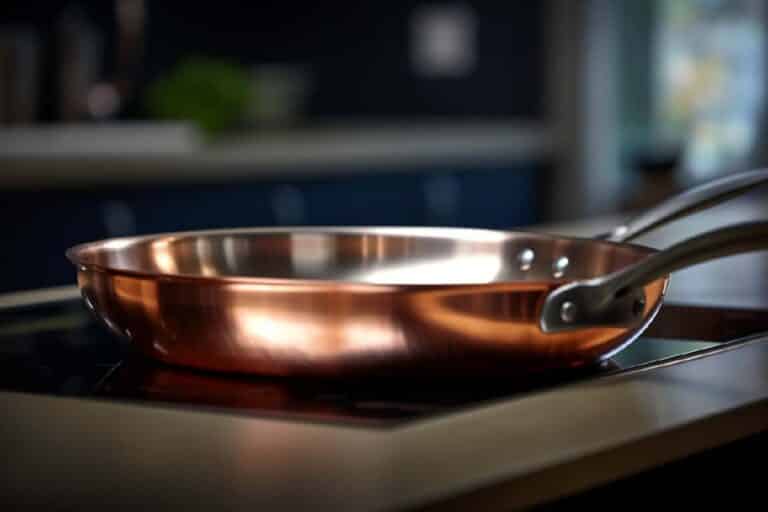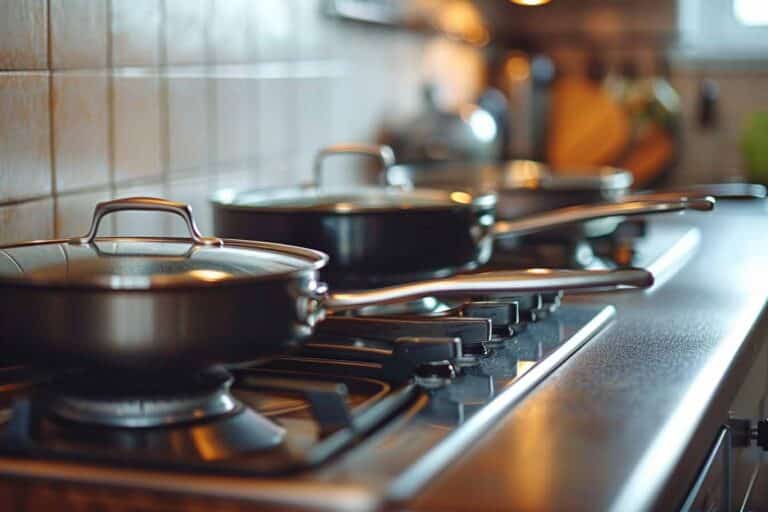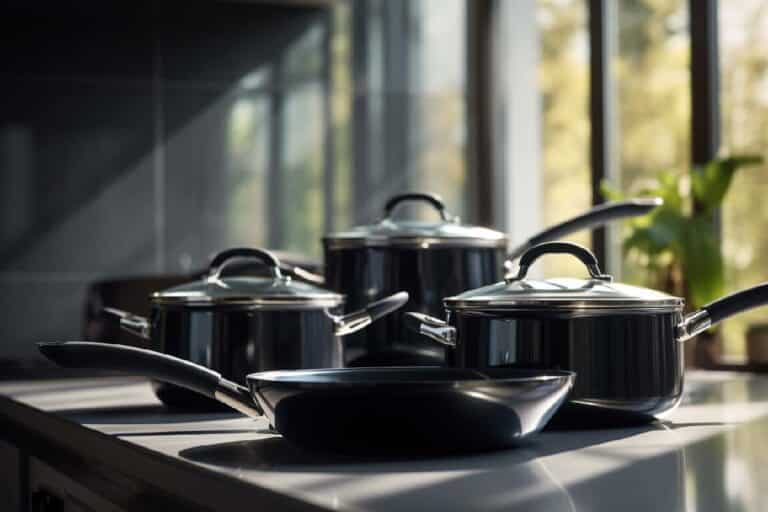Is Ceramic Titanium Safe? And Is Ceramic Safe?
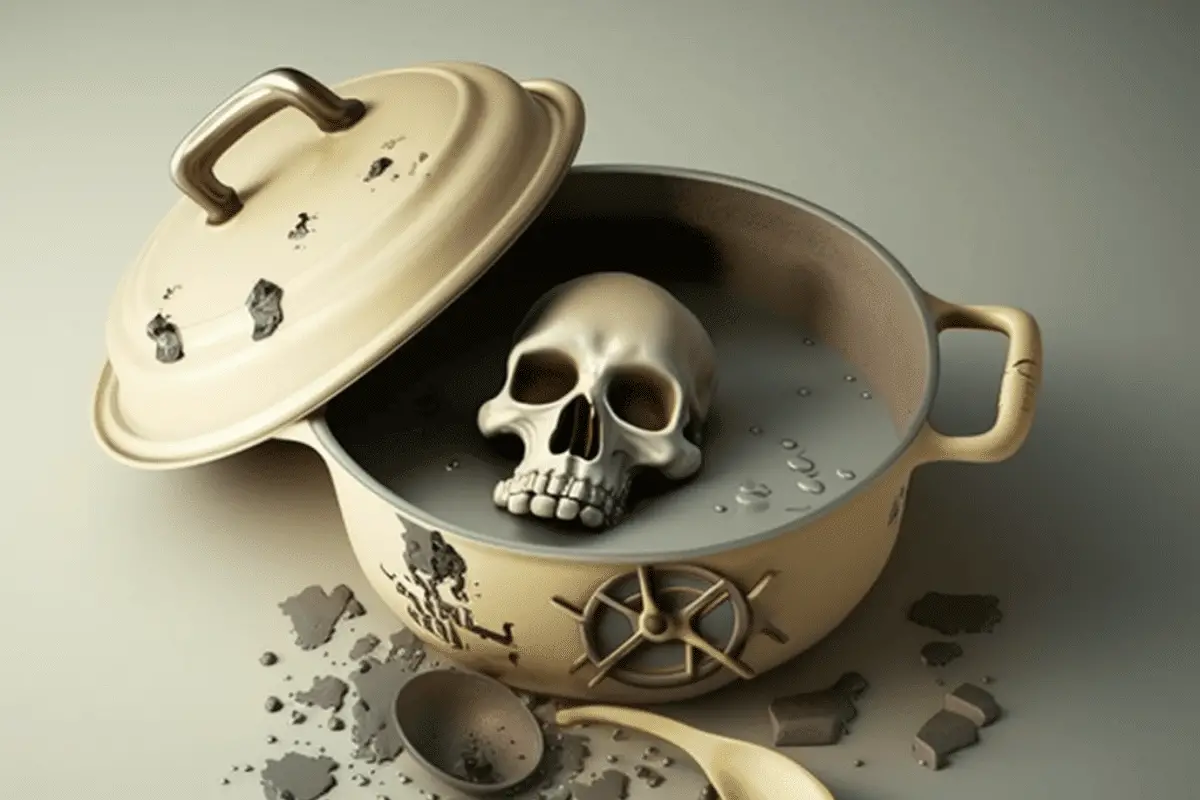
You’re off to buy a new ceramic titanium pan, or maybe just a ceramic pan, and you’re starting to get worried because you don’t know if it’s safe.
The truth is, titanium cookware with a ceramic coating can be dangerous, especially if it cracks. In addition, ceramic coating is highly fragile due to its thin layer and is likely to chip or crack after a few months of use unless you know how to care for ceramic pans.
In this article, we will be discussing how dangerous ceramic titanium cookware actually is, and what the safer cookware options are.
What’s dangerous about ceramic-titanium?
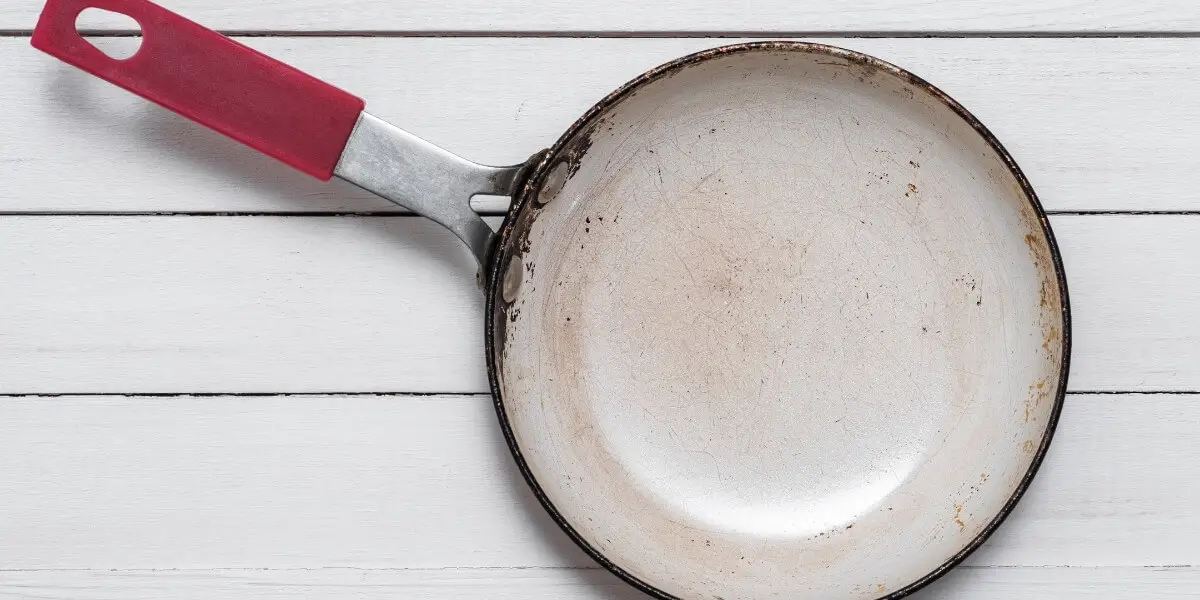
When the ceramic coating on cookware chips or cracks, it leaches out dangerous chemicals. The chemicals usually are lead or cadmium. If you don’t already know, lead and cadmium are the most hazardous chemicals that can lead to a coma or even death.
But even when the ceramic cookware doesn’t contain lead or cadmium, it’s usually neurotoxic aluminum hiding underneath. So unless you know what you are doing and can spot signs of damage while caring for your ceramic, I would not recommend using ceramic titanium cookware.
What is ceramic-titanium?
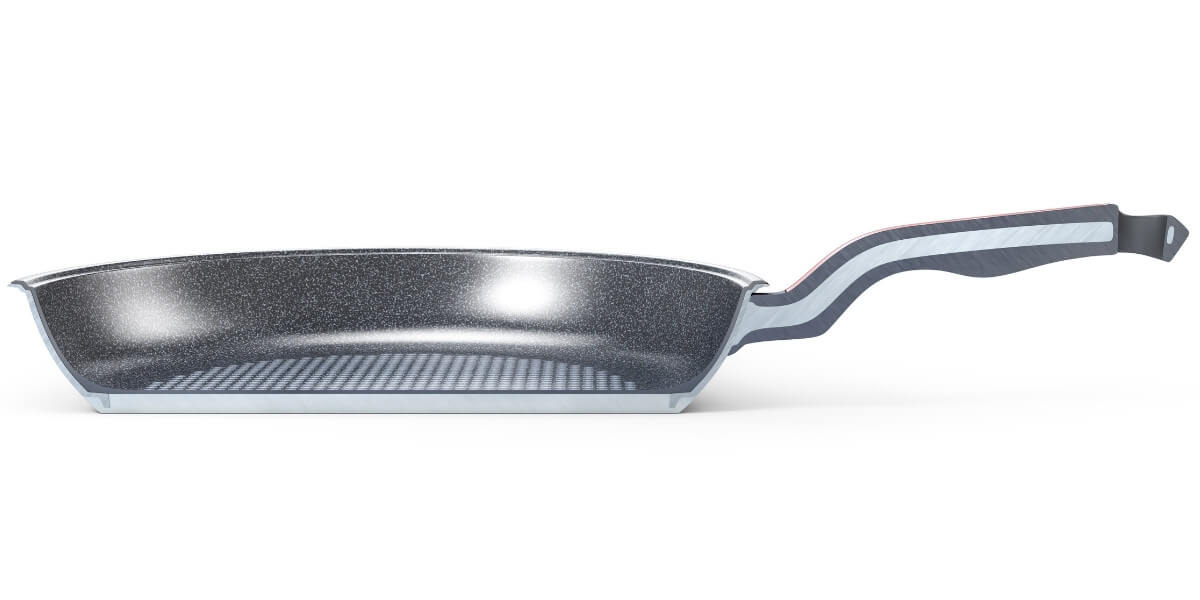
Ceramic titanium cookware is pure titanium metal with a ceramic layer of coating on top, also known as titanium cookware with a coating.
Ceramic titanium cookware became quite popular in the 1980s because titanium was one of the safest metals for cookware. In addition, the coated ceramic gave it an excellent non-stick property and a glossy finish making its style appealing.
However, many people did not and still do not know that thin layers of ceramic coating can become unsafe quite quickly, making the titanium cookware dangerous.
Is ceramic cookware safe or toxic?
Ceramic cookware is only toxic if it cracks or splits due to the chemicals leaching out into the food. However, 100% ceramic is extremely safe if you look after it.
Due to the thick layers of ceramic, it’s pretty hard to damage, especially if you take care of it. So if you are looking for ceramic, it’s always best to go for 100% ceramic due to its non-toxic property.
Which is safer, titanium cookware or ceramic?

Pure titanium cookware is the safest option, and this is because titanium is so strong and durable it’s almost impossible to break it. So if your looking for long-term cooking equipment for cooking food, then your best bet is titanium cookware. The only downside to pure titanium is that it doesn’t have non-stick properties, which may be a bit of a pain. However, this is one tiny downside for a long-term health benefit.
Pure ceramic cookware is also safe, and it’s robust. However, it is much harder to find than pure titanium. In addition, it can be damaged if you are a clumsy person, making it unsafe. The most significant benefit to ceramic cookware is its non-stick properties, which is why many people tend to go for it.
Between the two, if the non-stick is not too much of a concern for you, then go for titanium cookware. However, if you choose ceramic cookware instead of titanium cookware, make sure you look after it and keep your eye out for any cracks or damage to the ceramics cookware.
What is the safest cookware for your health?

So we have gone over the difference between ceramic titanium cookware and 100% ceramic. But which is the best cookware for safety? And what cookware is best for durability and cooking at high temperatures?
Below I will talk about my two favorite types of cookware that are the safest for your health; expert chefs commonly use them. In addition, these are great alternatives to ceramic titanium.
Cast Iron
Let’s start with my favorite. Cast iron cookware is possibly the safest option and provides many benefits to cooking.
These include:
- Extremely resistant to damage from heat or acids
- Safe with metal utensils
- Excellent non-stick coatings when seasoned properly
- Free from dangerous chemicals like PFOA or PTFE that is present in Teflon
They are just some of the reasons I love using cast iron for cooking, and it’s not just me; expert chefs tend to use cast iron too. It’s great for cooking food at high temperatures, it doesn’t damage easily, and it can even give you an iron boost!
Stainless Steel
Stainless steel is also another fantastic option. Its durability, scratch resistance, and non-stick varieties make it popular amongst chefs.
Some benefits of this metal for cooking food are:
- Non-stick properties
- Resistant to scratches and damage
- No harmful chemicals
- It Will last a very long time
When buying this cookware, you need to make sure you purchase food-grade stainless steel since this is the only type that doesn’t contain nickel or chromium. Buying food-grade stainless steel will ensure maximum safety when cooking food at high temperatures.
Titanium
You don’t think I would miss titanium out, do you? Titanium is a commonly used metal for cooking amongst households. It’s not too expensive and provides excellent durability.
Titanium cookware is one of the safest types of cookware available along; it’s resistant to acid degradation, it’s non-toxic, and it’s stable. So when exposed to high heat or acids, it won’t break down and leach into your food.
However, even if it does, there have been no reports of any titanium allergies or dangers, even at high doses. All the factors above make titanium cookware a great alternative to most cookware, especially ceramic cookware.
The only thing to note is that you need titanium cookware without any coatings on it. So basically, avoid ceramic-titanium or any other varieties of coating. Or, if you do opt-in for a coating, then make sure you pick a safe coating; otherwise, it becomes a bit pointless buying titanium cookware.
